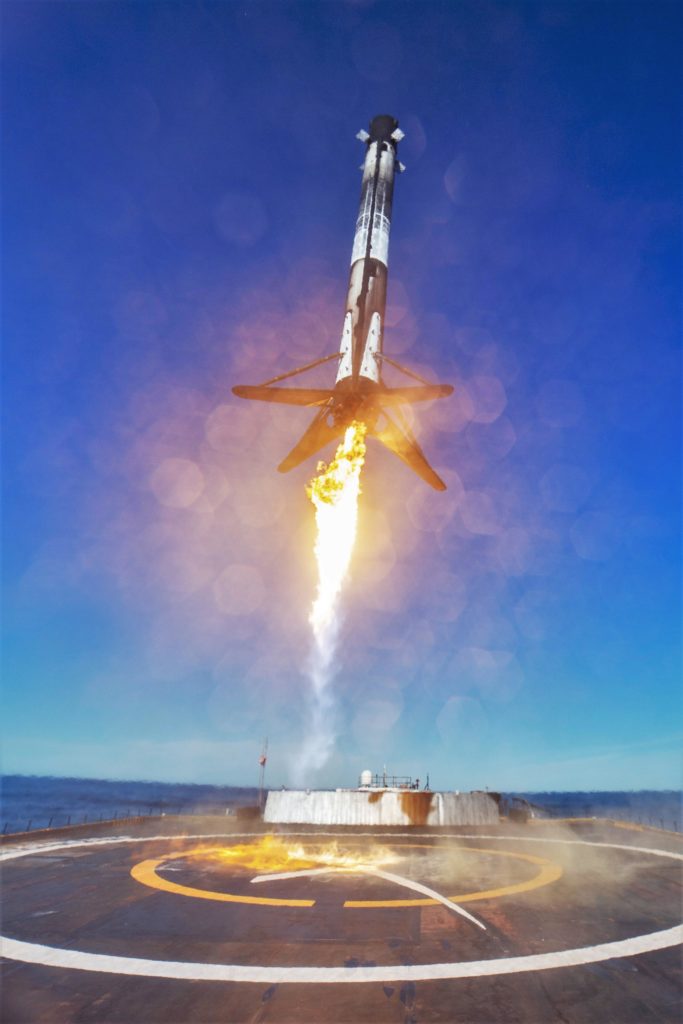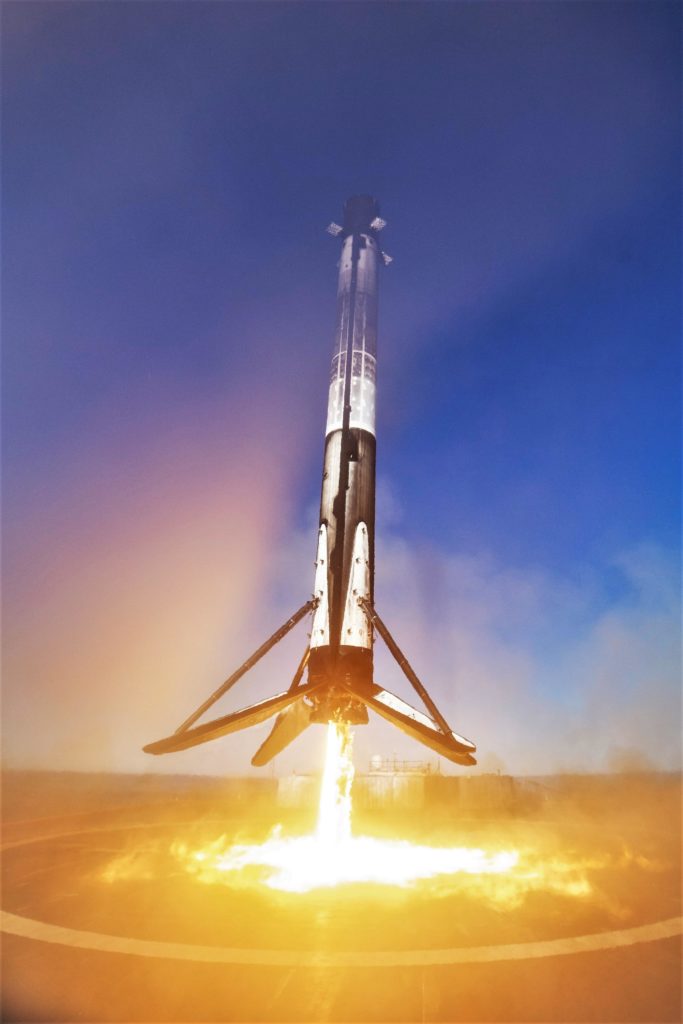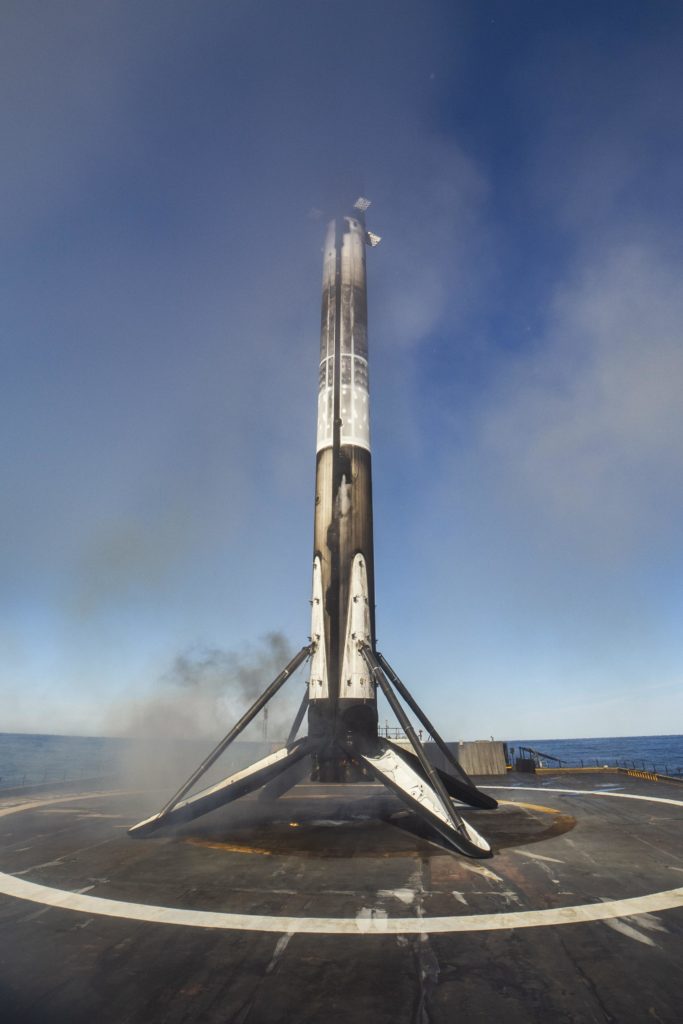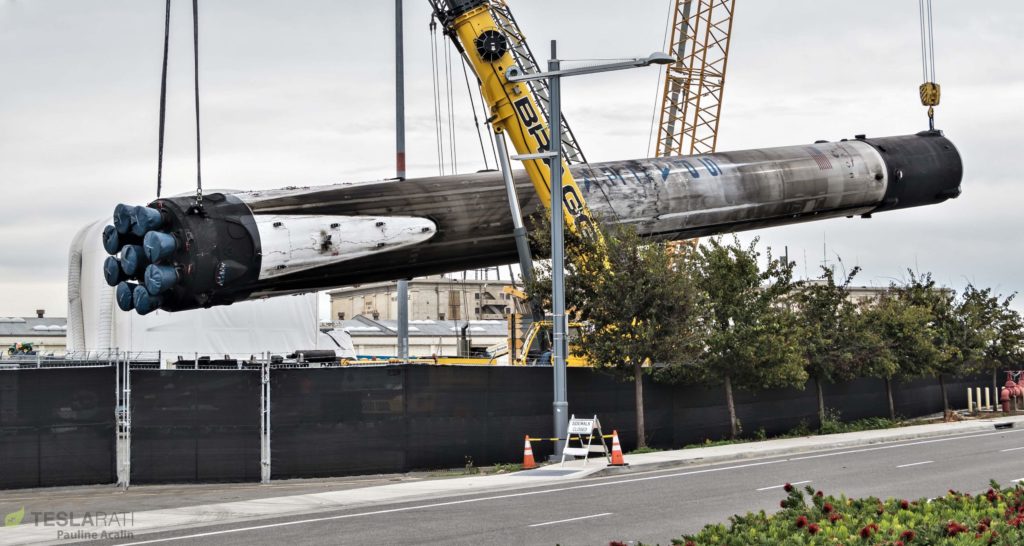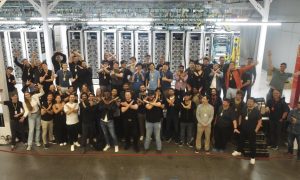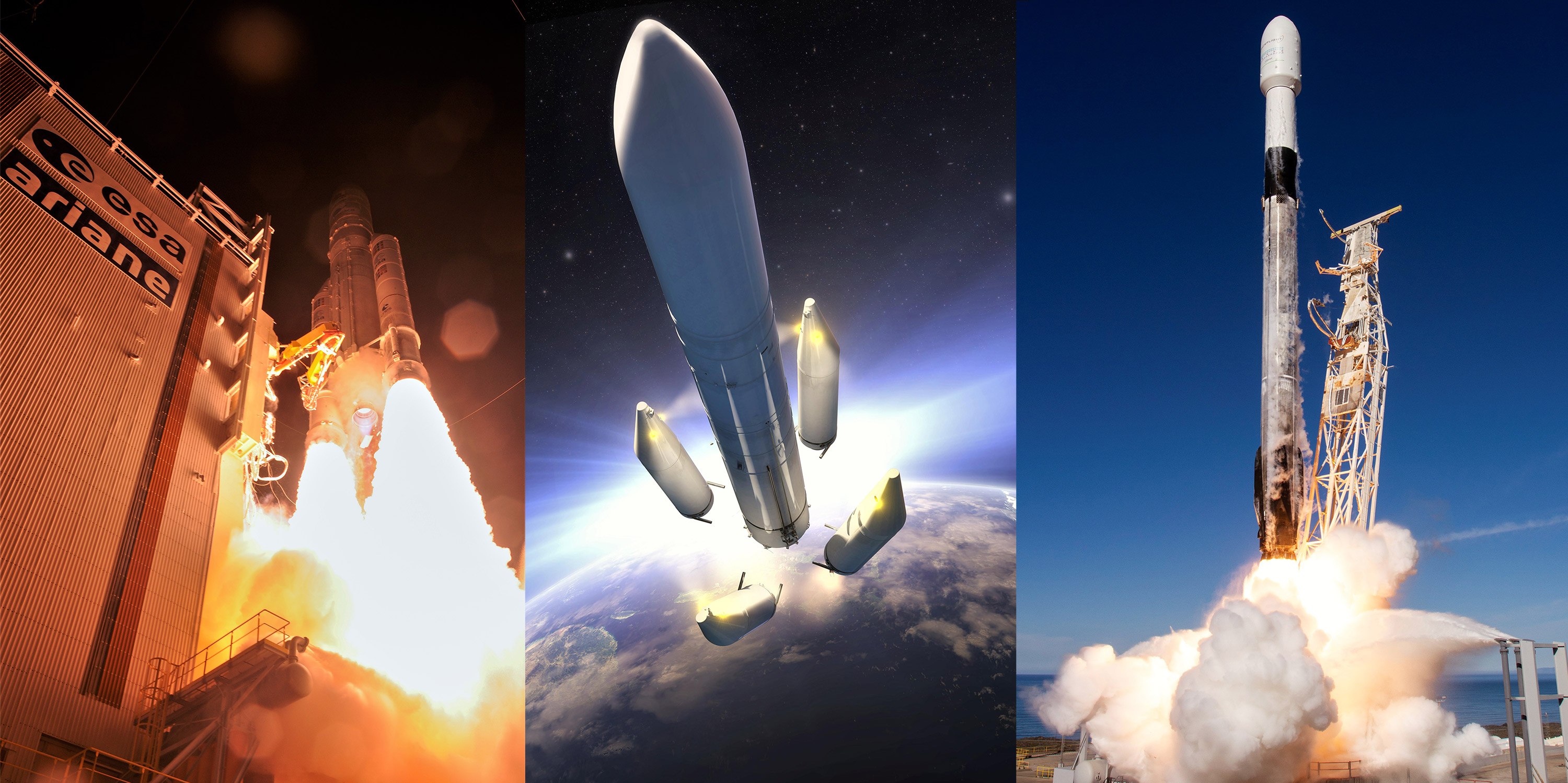

SpaceX
SpaceX competitor Arianespace criticized for lackluster response to Falcon 9’s success
Best known for the commercial success of its Ariane 5 workhorse rocket, European aerospace cooperative Arianespace was heavily critiqued in the latest annual report from France’s Cour des comptes (Court of Auditors) for what is perceived as an unsustainable and overly cautious response to the swift rise of SpaceX’s affordable and reusable Falcon 9 rocket.
The Ariane 6 rocket is at least a year from launch, but already French auditors are asking how it's going to compete with SpaceX.https://t.co/7jCpGBrSXx
— Eric Berger (@SciGuySpace) February 6, 2019
First spotted and discussed by Ars Technica’s Eric Berger, the French auditor’s 2019 report featured a full volume – 1 of 30 – dedicated to Ariane 6, a prospective next-gen Arianespace rocket selected for development by the EU in 2014. Despite the fact that Ariane 6 is at least a full year away from its first launch, Cour des comptes is already questioning the rocket’s ability to successfully make headway into an increasingly competitive market, competition that has already had a direct and tangible impact on Arianespace’s Ariane 5 launch vehicle.
“More than 50% of Falcon 9’s lifetime launches occurred in the last ~12% (24 months) of the rocket’s operational career.”
While other competitors certainly do exist, the fact remains that that said increase in launch market competition can be almost singlehandedly attributed to the rapid entrance of SpaceX’s Falcon 9 rocket onto the commercial launch scene. Despite major stumbles in 2015 and 2016 as a result of Falcon 9’s CRS-7 and Amos-6 failures, SpaceX appears to have dealt with the organizational faults that allowed them to occur, culminating in an auspicious launch cadence over the course of 2017 and 2018. While Falcon 9 has technically been flying since mid-2010, a full 38 of the rocket’s 64 successful launches were completed in the last 24 months, meaning that more than 50% of Falcon 9’s launches have occurred in the last ~12% of the rocket’s operational life.
Critically, a number of European nations settled on Ariane 6 as the successor to Ariane 5 in 2014, at which point Falcon 9 had launched just 13 times (7 times commercially) and SpaceX was more than 12 months away from its first successful rocket recovery and ~30 months from its first commercial reuse. To the credit of Arianespace and the EU nations that supported the prospective Ariane 5 successor, Ariane 6 may have actually been able to reliably compete with Falcon 9’s pricing if it had begun launching within 12-24 months of the 2014 decision to build it and if SpaceX had simply sat on its laurels and ended development programs.
“This new launcher does not constitute a sustainable response in order to be competitive in a commercial market in stagnation,” the auditor’s report states. The Ariane 6 rocket design is too “cautious,” according to the report, relying on mostly traditional technologies.
— Eric Berger (@SciGuySpace) February 6, 2019
Coasting on the race track
Of course, neither of those prerequisites to Ariane 6’s success occurred. SpaceX successfully reused the same Falcon 9 booster three times in just six months by the end of 2018, while Falcon Heavy is set to attempt its first two operational launches just a few months from now. Ariane 6 is still targeting a launch debut no earlier than (NET) 2020, while a handful of extremely limited reusable rocket R&D programs continue to limp towards nebulous targets with minimal funding. Meanwhile, thanks to Arianespace’s French heritage and the major financial support of French space agency CNES, Cour des comptes is in the right to be highly critical of a ~$3.9B rocket development program likely to cost France at least $600M before the first launch.
- SpaceX has now been routinely reusing Falcon 9 rockets on commercial missions for nearly two years. (SpaceX)
- As of January 2019, flight-proven Falcon 9 boosters have performed 19 commercial launches since March 2017. (SpaceX)
- Nearly 60% of SpaceX’s 2018 launches were flown on flight-proven Falcon 9 boosters. (SpaceX)
- Falcon 9 B1046 became the first SpaceX booster to launch three separate times in early-December 2018. (Pauline Acalin)
Once Ariane 6 is ready to launch, it’s aspirational pricing will all but guarantee an inability to compete on an even global playing field. Divided into two versions, A62 and A64, Ariane 6 will cost at least 75 million Euros (~$85M) for performance equivalent to SpaceX’s Falcon 9 in its reusable configuration (base price: $62M), while the heavier A64 variant – capable of placing two heavy satellites (11,500 kg) into geostationary transfer orbit – will cost at least 90 million Euros (~$102M) per launch. Admittedly, $102M to launch a duo of large geostationary satellites would be easily competitive with Falcon 9 with per-customer costs around $50M, but this only holds true if the imminent commercial introduction of Falcon Heavy (list price: $90M) is ignored.
However, the market for large geostationary satellites has plummeted into the ground in the last two years, over the course of which just 12 have been ordered. Arianespace thus faces a conundrum where its cheaper Ariane 62 rocket is already too expensive to compete commercially and the potentially competitive Ariane 64 variant is only competitive for a commercial launch market that has withered to barely a third of its nominal demand in just two years time. Acknowledged by France’s auditors (and noted by Mr. Berger), the most probable outcome for Ariane 6 is one in which the very existence of the rocket will be predicated upon continual annual subsidies from the European Space Agency (ESA) in order to make up for the rocket’s inability to sustain commercial orders beyond a handful of discounted shoo-in contracts.
Check out Teslarati’s newsletters for prompt updates, on-the-ground perspectives, and unique glimpses of SpaceX’s rocket launch and recovery processes!
Elon Musk
Elon Musk reveals SpaceX’s target for Starship’s 10th launch
Elon Musk has revealed SpaceX’s target timeline for the next Starship launch, which will be the tenth in program history.
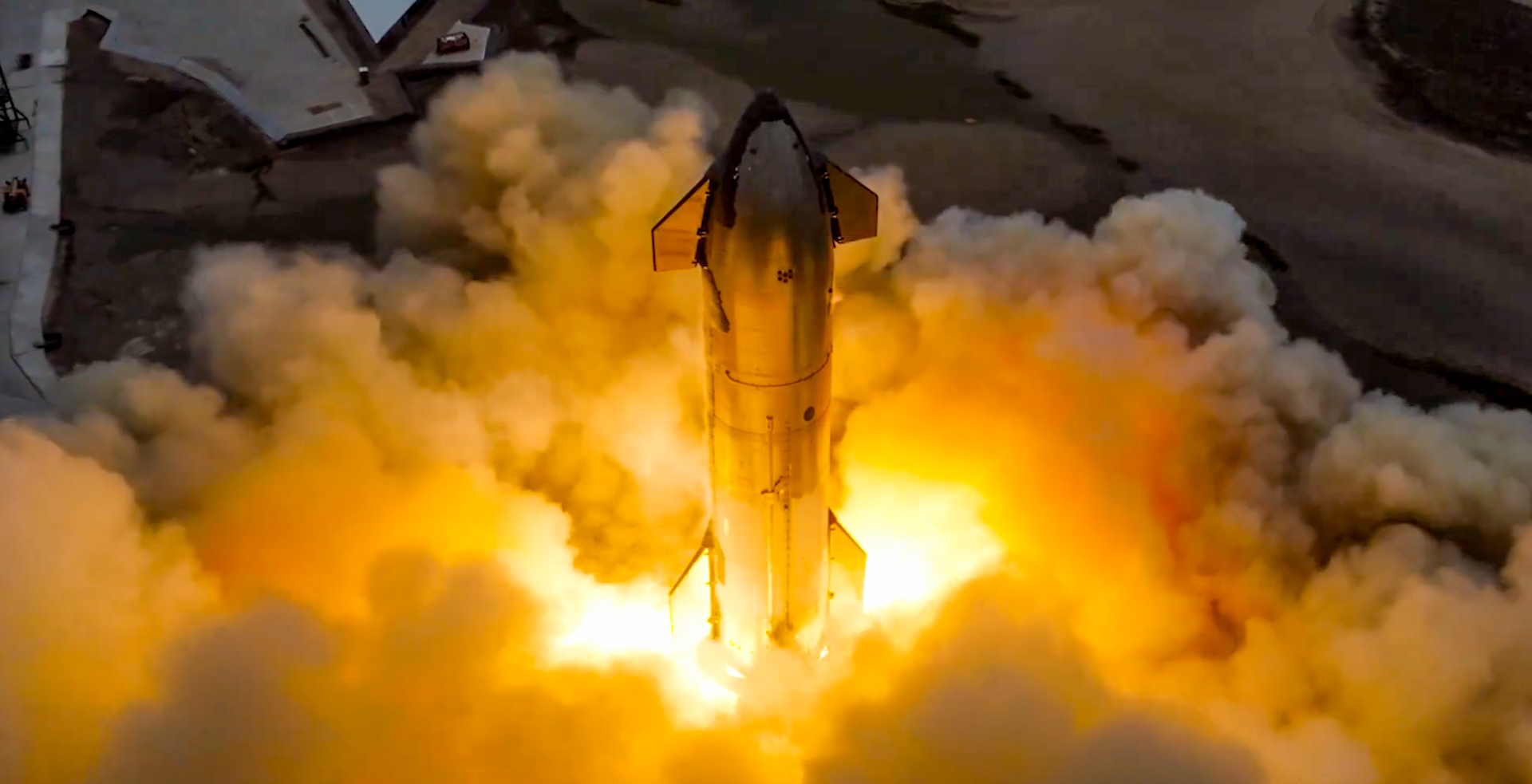
Elon Musk has revealed SpaceX’s target timeline for the next Starship launch, which will be the tenth in program history.
Musk says SpaceX is aiming for a timeline of roughly three weeks from now, which would come about ten weeks after the previous launch.
Coincidentally, it would bring the two launches 69 days apart, and if you know anything about Elon Musk, that would be an ideal timeline between two launches.
🚨 Just wanted you to know, Starship 10’s projected test flight date, according to Grok, is August 4.
Starship’s ninth test flight took place on May 27.
August 4 is 69 days after May 27.
Do with that what you will. 🚀 https://t.co/IISpT08rIy
— TESLARATI (@Teslarati) July 16, 2025
SpaceX is coming off a test flight in which it lost both the Super Heavy Booster and the Upper Stage in the previous launch. The Super Heavy Booster was lost six minutes and sixteen seconds into the flight, while SpaceX lost communication with the Ship at 46 minutes and 48 seconds.
Musk is aiming for the tenth test flight to take place in early August, he revealed on X:
Launching again in ~3 weeks
— Elon Musk (@elonmusk) July 14, 2025
This will be SpaceX’s fourth test flight of the Starship program in 2025, with each of the previous three flights bringing varying results.
IFT-7 in January brought SpaceX its second successful catch of the Super Heavy Booster in the chopstick arms of the launch tower. The ship was lost after exploding during its ascent over the Turks and Caicos Islands.
IFT-8 was on March 6, and SpaceX caught the booster once again, but the Upper Stage was once again lost.
The most recent flight, IFT-9, took place on May 27 and featured the first reused Super Heavy Booster. However, both the Booster and Upper Stage were lost.
The Federal Aviation Administration (FAA) hit SpaceX with a mishap investigation for Flight 9 on May 30.
News
SpaceX’s Crew-11 mission targets July 31 launch amid tight ISS schedule
The flight will lift off from Launch Complex 39A at Kennedy Space Center in Florida.
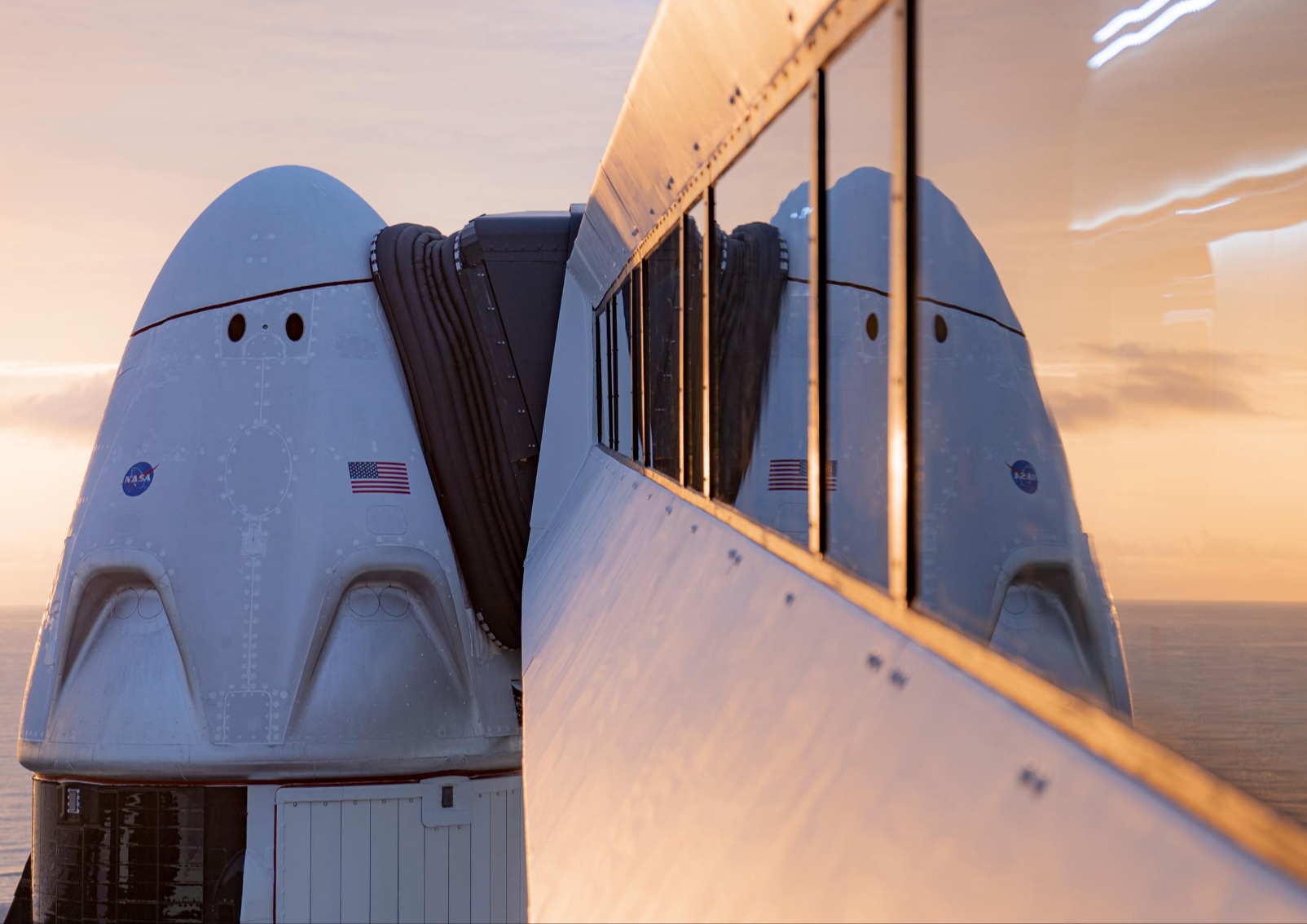
NASA and SpaceX are targeting July 31 for the launch of Crew-11, the next crewed mission to the International Space Station (ISS). The flight will lift off from Launch Complex 39A at Kennedy Space Center in Florida, using the Crew Dragon Endeavour and a Falcon 9 booster.
Crew Dragon Endeavour returns
Crew-11 will be the sixth flight for Endeavour, making it SpaceX’s most experienced crew vehicle to date. According to SpaceX’s director of Dragon mission management, Sarah Walker, Endeavour has already carried 18 astronauts representing eight countries since its first mission with NASA’s Bob Behnken and Doug Hurley in 2020, as noted in an MSN report.
“This Dragon spacecraft has successfully flown 18 crew members representing eight countries to space already, starting with (NASA astronauts) Bob (Behnken) and Doug (Hurley) in 2020, when it returned human spaceflight capabilities to the United States for the first time since the shuttle retired in July of 2011,” Walker said.
For this mission, Endeavour will debut SpaceX’s upgraded drogue 3.1 parachutes, designed to further enhance reentry safety. The parachutes are part of SpaceX’s ongoing improvements to its human-rated spacecraft, and Crew-11 will serve as their first operational test.
The Falcon 9 booster supporting this launch is core B1094, which has launched in two previous Starlink missions, as well as the private Ax-4 mission on June 25, as noted in a Space.com report.
The four-members of Crew-11 are NASA astronauts Zena Cardman and Mike Fincke, as well as Japan’s Kimiya Yui and Russia’s Oleg Platonov.
Tight launch timing
Crew-11 is slated to arrive at the ISS just as NASA coordinates a sequence of missions, including the departure of Crew-10 and the arrival of SpaceX’s CRS-33 mission. NASA’s Bill Spetch emphasized the need for careful planning amid limited launch resources, noting the importance of maintaining station altitude and resupply cadence.
“Providing multiple methods for us to maintain the station altitude is critically important as we continue to operate and get the most use out of our limited launch resources that we do have. We’re really looking forward to demonstrating that capability with (CRS-33) showing up after we get through the Crew-11 and Crew-10 handover,” Spetch stated.
News
SpaceX launches Ax-4 mission to the ISS with international crew
The SpaceX Falcon 9 launched Axiom’s Ax-4 mission to ISS. Ax-4 crew will conduct 60+ science experiments during a 14-day stay on the ISS.
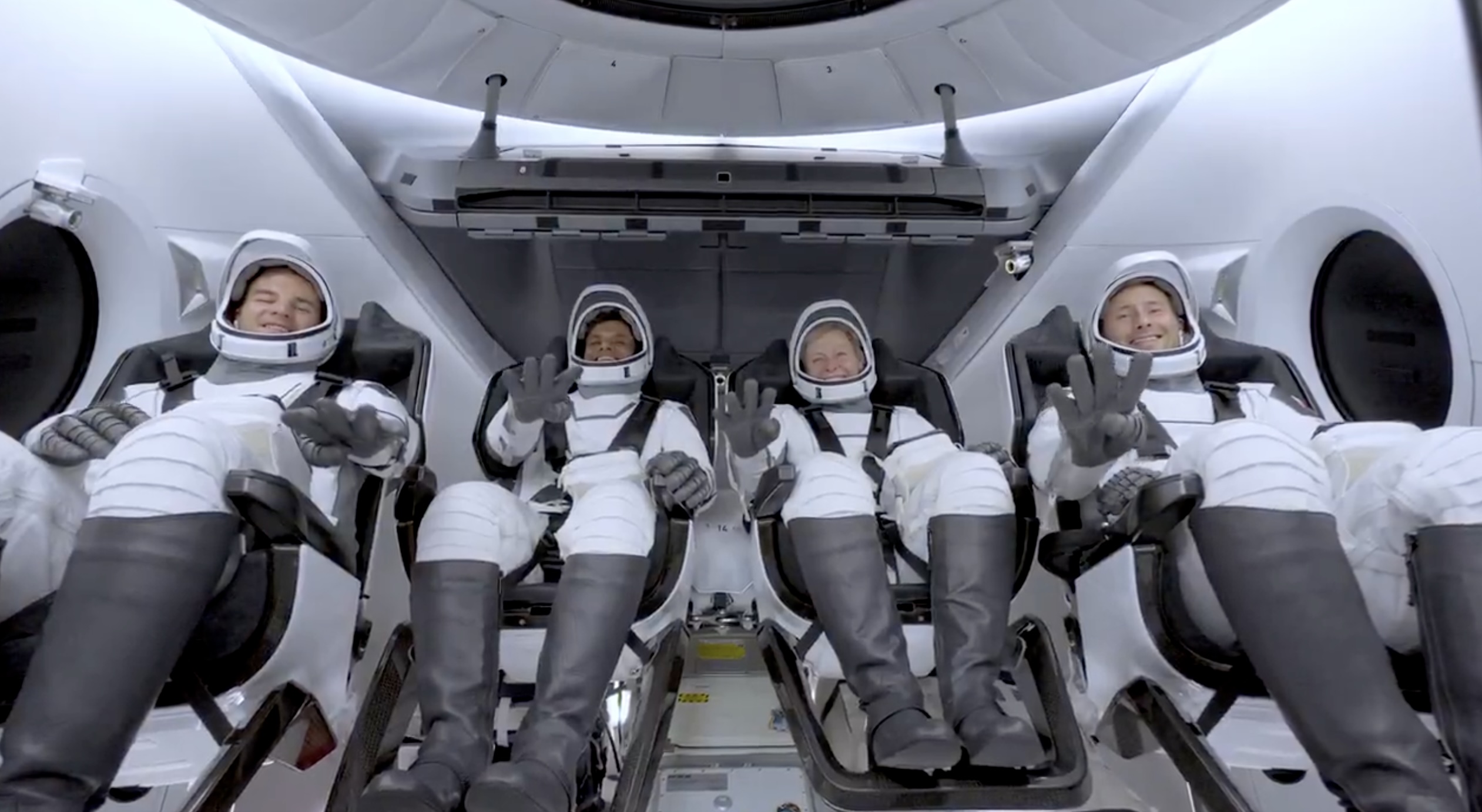
SpaceX launched the Falcon 9 rocket kickstarting Axiom Space’s Ax-4 mission to the International Space Station (ISS). Axiom’s Ax-4 mission is led by a historic international crew and lifted off from Kennedy Space Center’s Launch Complex 39A at 2:31 a.m. ET on June 25, 2025.
The Ax-4 crew is set to dock with the ISS around 7 a.m. ET on Thursday, June 26, 2025. Axiom Space, a Houston-based commercial space company, coordinated the mission with SpaceX for transportation and NASA for ISS access, with support from the European Space Agency and the astronauts’ governments.
The Ax-4 mission marks a milestone in global space collaboration. The Ax-4 crew, commanded by U.S. astronaut Peggy Whitson, includes Shubhanshu Shukla from India as the pilot, alongside mission specialists Sławosz Uznański-Wiśniewski from Poland and Tibor Kapu from Hungary.
“The trip marks the return to human spaceflight for those countries — their first government-sponsored flights in more than 40 years,” Axiom noted.
Shukla’s participation aligns with India’s Gaganyaan program planned for 2027. He is the first Indian astronaut to visit the ISS since Rakesh Sharma in 1984.
Axiom’s Ax-4 mission marks SpaceX’s 18th human spaceflight. The mission employs a Crew Dragon capsule atop a Falcon 9 rocket, designed with a launch escape system and “two-fault tolerant” for enhanced safety. The Axiom mission faced a few delays due to weather, a Falcon 9 leak, and an ISS Zvezda module leak investigation by NASA and Roscosmos before the recent successful launch.
As the crew prepares to execute its scientific objectives, SpaceX’s Ax-4 mission paves the way for a new era of inclusive space research, inspiring future generations and solidifying collaborative ties in the cosmos. During the Ax-4 crew’s 14-day stay in the ISS, the astronauts will conduct nearly 60 experiments.
“We’ll be conducting research that spans biology, material, and physical sciences as well as technology demonstrations,” said Whitson. “We’ll also be engaging with students around the world, sharing our experience and inspiring the next generation of explorers.”
SpaceX’s Ax-4 mission highlights Axiom’s role in advancing commercial spaceflight and fostering international partnerships. The mission strengthens global space exploration efforts by enabling historic spaceflight returns for India, Poland, and Hungary.
-

 Elon Musk1 day ago
Elon Musk1 day agoWaymo responds to Tesla’s Robotaxi expansion in Austin with bold statement
-

 News1 day ago
News1 day agoTesla exec hints at useful and potentially killer Model Y L feature
-

 Elon Musk2 days ago
Elon Musk2 days agoElon Musk reveals SpaceX’s target for Starship’s 10th launch
-

 Elon Musk3 days ago
Elon Musk3 days agoTesla ups Robotaxi fare price to another comical figure with service area expansion
-

 News1 day ago
News1 day agoTesla’s longer Model Y did not scale back requests for this vehicle type from fans
-

 News1 day ago
News1 day ago“Worthy of respect:” Six-seat Model Y L acknowledged by Tesla China’s biggest rivals
-

 News2 days ago
News2 days agoFirst glimpse of Tesla Model Y with six seats and extended wheelbase
-

 Elon Musk2 days ago
Elon Musk2 days agoElon Musk confirms Tesla is already rolling out a new feature for in-car Grok

